Activities SOLVE Nepal
Click here to download the SOLVEN'S ACTIVITIES OF LAST AMI PHASES... (Overview_SOLVEN)
Outstanding Farmer Felicitation, Orientation Training on Application of Science and Technology in Agriculture gricultural Tools Handover Successfully Conducted!
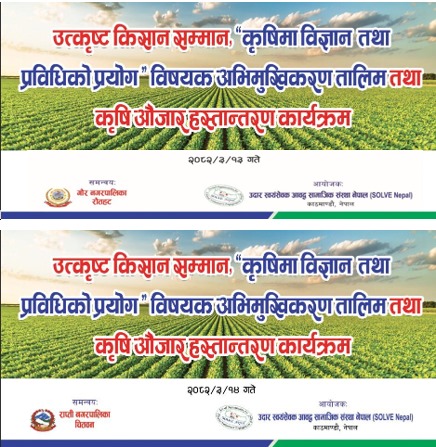 SOLVE Nepal, in collaboration with Gaur Municipality, Rautahat, and Rapti Municipality, Chitwan, successfully organized a special
program to recognize the hard work and dedication of our local farmers.
As part of this initiative, deserving farmers were honored with certificates of appreciation, an orientation session on Application of
Science and Technology in Agriculture was held, and modern agricultural tools were handed over to support their work in the fields.
SOLVE Nepal, in collaboration with Gaur Municipality, Rautahat, and Rapti Municipality, Chitwan, successfully organized a special
program to recognize the hard work and dedication of our local farmers.
As part of this initiative, deserving farmers were honored with certificates of appreciation, an orientation session on Application of
Science and Technology in Agriculture was held, and modern agricultural tools were handed over to support their work in the fields.
Our goals are to appreciate and encourage local farmers for their invaluable contributions, to promote productivity through access to modern agricultural tools,
and to stand by our commitment to sustainable agriculture and community empowerment.
Solve Nepal extends heartfelt congratulations to all the recognized farmers and wishes them continued success and prosperity in their agricultural journey.
We believe that empowering our farmers with knowledge and resources is the key to building a resilient and self-reliant community.
Together, let’s keep solving for a better Nepal!
Advancing Agricultural Development for the Madhesi Community in Rautahat
In Rautahat, our focus is on uplifting the production of agricultural products as a catalyst for economic growth, socio-economic improvement, and educational advancement for the Madhesi community. This region, known for its fertile land and hardworking farmers, holds immense potential to contribute to Nepal’s overall food security and rural prosperity. However, challenges such as limited access to modern farming techniques, inadequate market linkages, and lack of resources have hindered progress. By introducing advanced agricultural tools, providing technical training, and fostering innovation, we aim not only to enhance productivity but also to empower local farmers with the skills and confidence to compete in wider markets. This holistic approach ensures that agricultural success translates into better livelihoods, increased educational opportunities, and stronger community resilience for the Madhesi people.
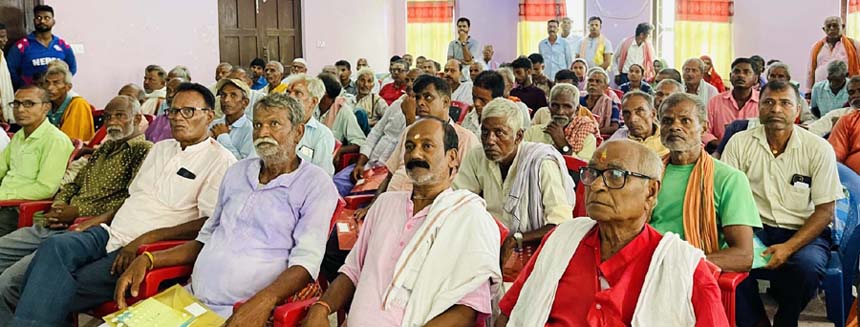
Empowering the Chepang Community in Rapti
In Rapti Municipality of Chitwan District, we are working to increase agricultural productivity as a means to improve the socio-economic conditions, health, sanitation, and educational opportunities for the Chepang—also known as Praja—an indigenous tribal Nepali community primarily residing in this area. The Chepang are recognized as a marginalized group, facing significant challenges such as poverty, limited access to resources, and social exclusion. Historically semi-nomadic, they have transitioned to subsistence farming, relying heavily on forest resources for their livelihoods. By providing access to modern tools, training, and sustainable farming practices, we aim to create pathways for lasting change in both areas.

Rapid Assessment of Climate Change Impacts on Farming Practices in Upper Karnali Region

As part of the objective to assess the impact of climate change on farming practices, our team successfully conducted a
rapid field assessment in the upper Karnali region, covering Mugu, Jumla, and Kalikot districts of Karnali Province. The primary aim was to evaluate local peasants, understanding of climate change and their adaptation strategies in the face of changing climatic conditions.
During the official visit, we engaged in field-level interactions with farmers, local agricultural stakeholders, and community leaders. These interactions provided crucial insights into how climate variability is affecting commercial farming systems, agro-ecological practices, use of bio-inputs, and traditional as well as modern seed management techniques in the region.
Key observations included:
- Increasing unpredictability in seasonal rainfall affecting sowing and harvesting cycles.
- Shift in crop patterns and increased interest in climate-resilient and indigenous seed varieties.
- Growing but limited awareness of organic bio-inputs and climate-smart agricultural practices.
- Traditional knowledge systems are still dominant but are being challenged by rapid ecological changes.
This rapid assessment will contribute to a broader understanding of climate-induced vulnerabilities in high-altitude farming communities
and help inform policy recommendations and programmatic interventions for resilient and sustainable agriculture in Karnali Province.
Mugu Field Visit Gallery
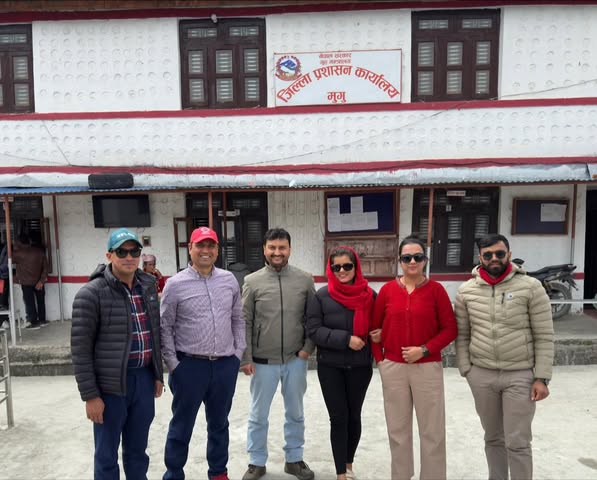

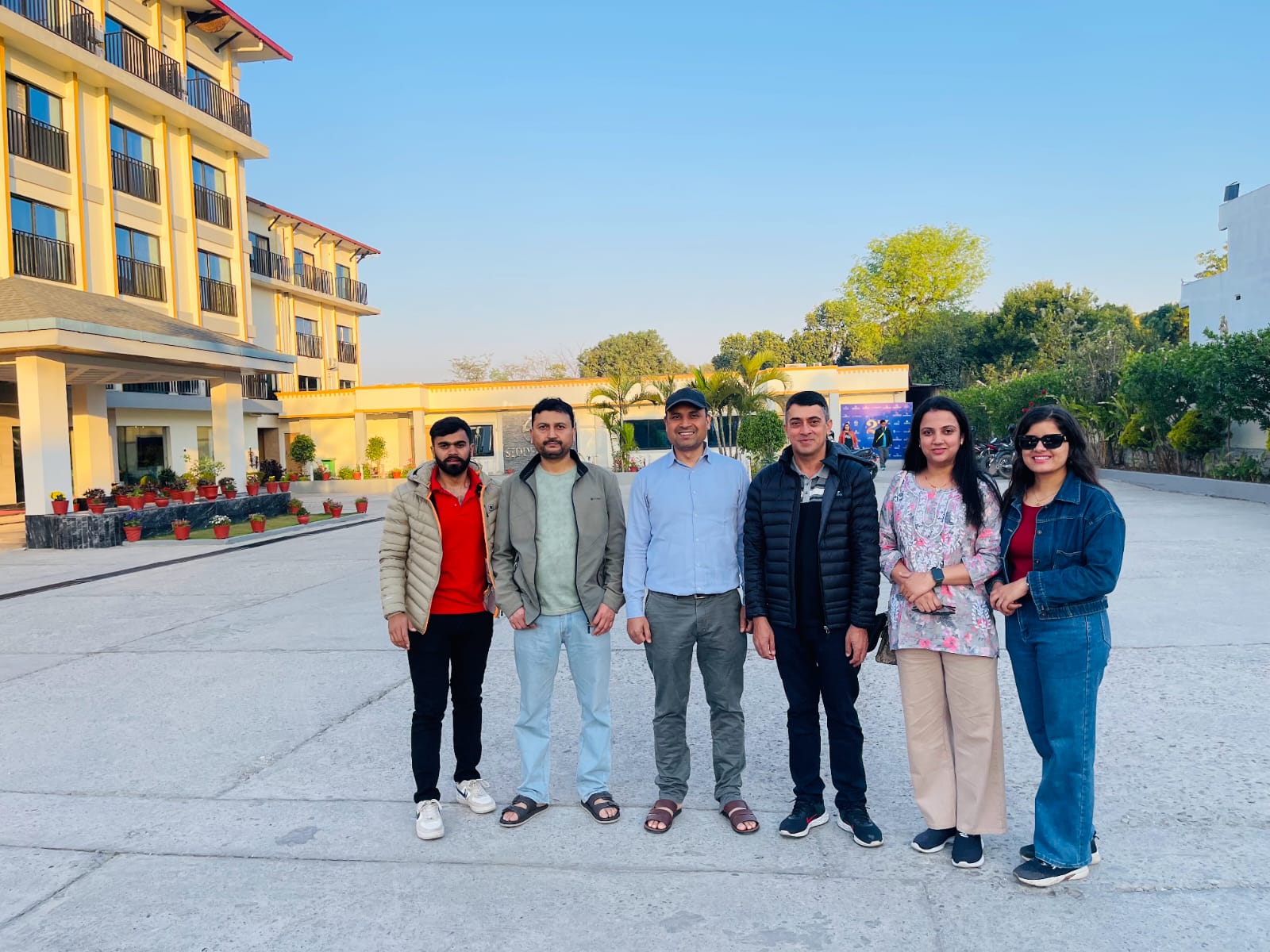
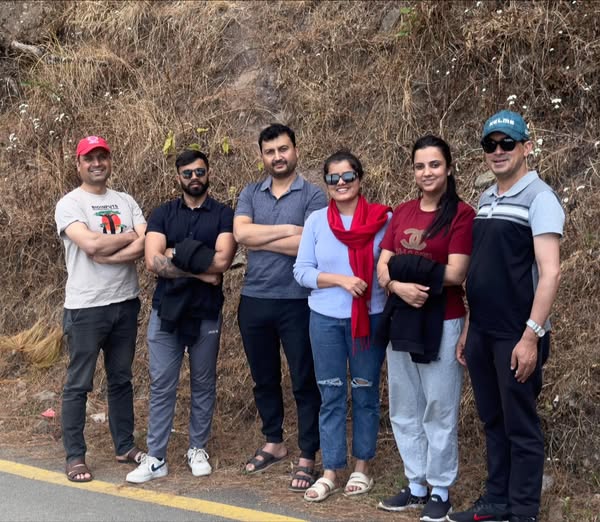
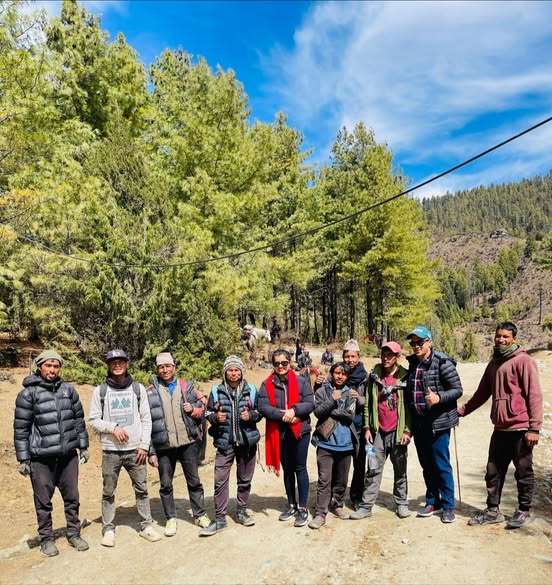
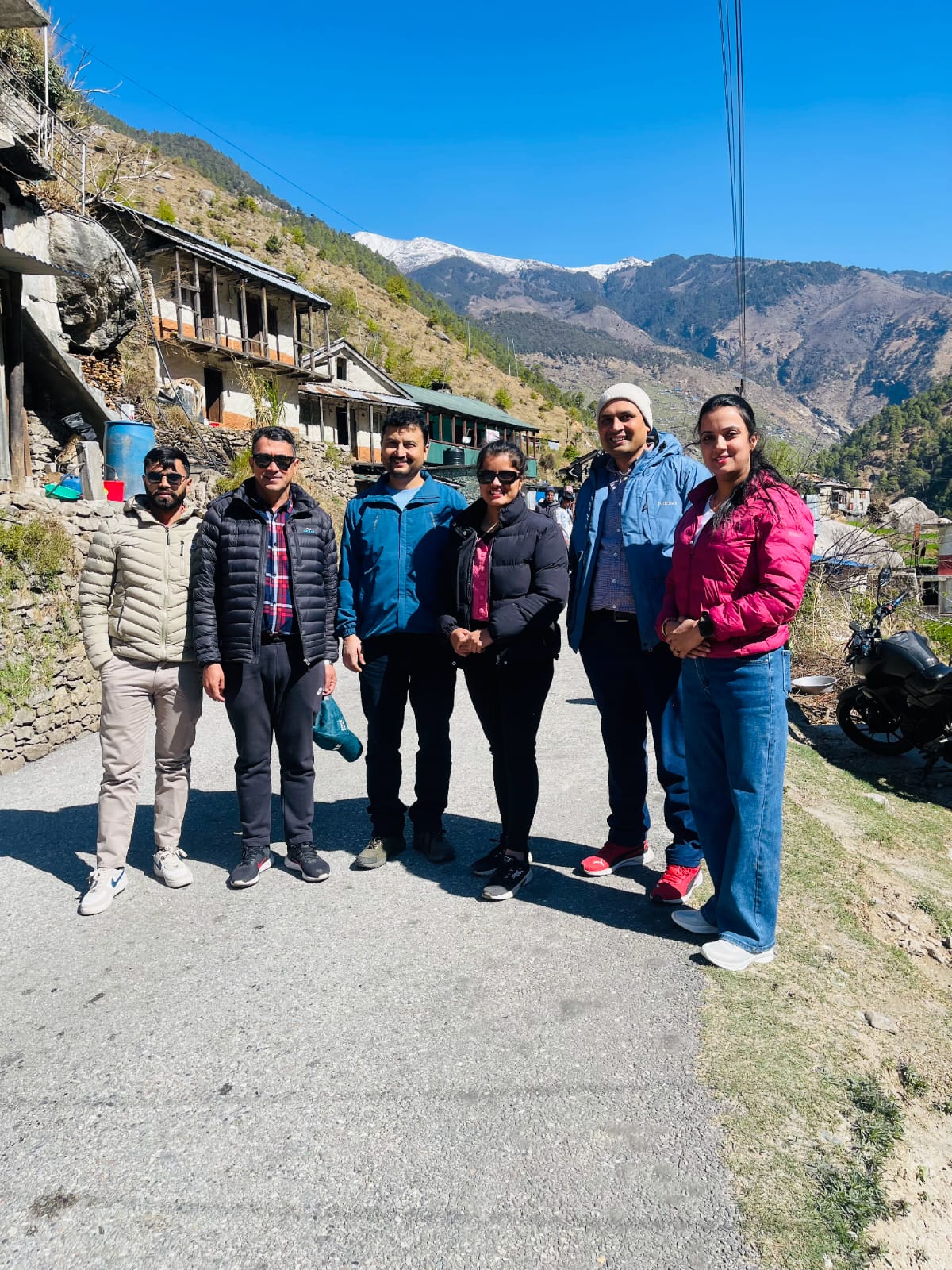
SOLVE Nepal Conducted One-Day Orientation and Training on Media Awareness and Entrepreneurship Development

SOLVE Nepal, in collaboration with the National Youth Council, successfully conducted a one-day orientation and training program focusing on media awareness and entrepreneurship development. The event took place at Gandhi Adarsha Secondary School, a renowned educational institution located in Ward No. 9 of Gokarneshwor Municipality, Gothatar. The program was attended by over 120 students from five different schools.
The orientation featured eight presentations covering topics such as media literacy, digital literacy, the significance of journalism, news and editing, ICT in media, media and entrepreneurship, fake news, yellow journalism, and ethical guidelines. Additionally, there was a special discussion on entrepreneurship development aimed at encouraging higher secondary level students.
Distinguished speakers included Ram Prasad Dahal, General Secretary of the Federation of Nepali Journalists; Anil Thapa, Ward Chairperson of Ward No. 9, Gokarneshwor Municipality; Mohan Gautam, Project Head of SOLVE Nepal; the school's Vice Principal; Plus Two Coordinator Bandana Ghimire; Chairperson of the School Management Committee Gaya Upadhyay; former Chairperson of the Press Council Bhawani Baral; Kanti Nupane; Engineer Naresh Pokharel; and Sabina Gyawali. The program was moderated by Kanti Nupane, Vice President of the Press Council Kathmandu Branch and a journalist.
This training provided students with essential knowledge and skills related to media and entrepreneurship, which are expected to contribute significantly to their personal and professional development.
Policy Research:
Conducted in-depth research on the 'Organic Karnali' mission, collecting data across Karnali province and reviewing relevant policies. A comprehensive report with recommendations has been prepared for stakeholders.Farmer Training:
Successfully organized five training sessions across Bagmati, Lumbini, and Sudurpaschim provinces, empowering 276 farmers with knowledge of new agricultural technologies and ICT tools.Recognition Awards:
Awarded 27 young, women, and Dalit agro-farmers from various regions, celebrating their contributions to agriculture and inspiring others. Equipment Support: Provided 212 units of essential agricultural equipment (Mini Tillers, Earth Augers, and Backle Sprayers for organic pesticides) to individual farmers and groups to promote technology adoption.Organized Knowledge Sharing Program to Empower Students with Agricultural Technology
.jpg)
SOLVE Nepal hosted a successful Knowledge Sharing Program (KSP) on
Tuesday, February 20, 2024, in Hotel Aryal, Newbaneshwor, Kathmandu.
This program aimed to equip students with the latest advancements in
agricultural technology and gather valuable feedback on their innovative
platform, NepaliKrishi.com, its accompanying mobile application,
Nepalikrishi and Training Module. Over 50 participants from four
different colleges тАУ HICAST (Himalayan College of Agricultural Sciences
and Technology College, Swastik College, Madan Ashrit Memorial Polytechnic Institute,
and Nepal Mega College тАУ actively participated in the program. The
breakdown of participants is as follows:
HICAST College: 22 students (13 girls, 9 boys)
Swastik College: 10 students (5 girls, 5 boys)
Madan Ashrit Memorial Polytechnic Institute: 10 students (6 girls, 4
boys)
Nepal Mega College: 5 students (2 girls, 3 boys)
Other colleges: 3 participants
Elevating Agricultural Practices through Technology:
The program commenced with the introduction of Solve Nepals mission and ongoing initiatives by Mr. Amit Gautam. This was followed by a presentation by Er. Naresh Pokharel on NepaliKrishi.com and the Nepalikrishi app. He delved into the programтАЩs aim to bridge the gap between traditional and technology-driven agricultural practices. Thenafter Ms. Kanti Neupane presented current training model named "ICT in Agriculture".Exploring the Framework of NepaliKrishi:
More than just presenting the platform, the program offered a unique opportunity for students to experience the website, training module and app firsthand. An interactive exhibition showcased the framework of all platforms, allowing attendees to navigate their features and understand their functionalities.
Gathering Valuable Feedback and Shaping the Future:
A core focus of the KSP was to gather constructive feedback from the student participants. Through interactive sessions and open discussions, Solve Nepal aimed to gain valuable insights on how to improve the user experience and functionalities of website, training module and app. These suggestions will be instrumental in shaping the future development of the platform and ensuring it effectively meets the needs of the Nepali agricultural community.
The program concluded with Mr. Mohan Gautam, Project Head, handing out certificates of participation and Ms. Sabina Ghyawali and Mr. Subash Ghimire appreciate to the all participants for their active participation with maintain their registration record. The event was held under the leadership of Mr. Shushil Khanal, President of Solve Nepal. This Knowledge Sharing Program served as a testament to Solve NepalтАЩs commitment to empowering future generations of agriculturalists.
By fostering engagement with the latest technologies and actively seeking feedback, Solve Nepal is paving the way for a more informed and innovative agricultural future in Nepal.
.jpg)
.jpg)
.jpg)
.jpg)
.jpg)
.jpg)








Accomplished Activities/Experiences
Agricultural Model Initiatives III -2023-2024 successfully completed
Accomplished Tasks:
Comprehensive Agricultural Training Programs:
Conducted agricultural training sessions across various provinces in Nepal, including national-level workshops focused on promoting peasant production and advancing ICT applications in agriculture.
National Workshops on Agricultural Policy:
Organized workshops at the national level to share existing policies aimed at promoting peasant production in Nepal, fostering a supportive environment for agricultural development.
Recognition of Exemplary Youth and Women Peasants:
Honored youth and women peasants for their exemplary contributions to agriculture, highlighting their role as key drivers of innovation and progress in their communities.
Distribution of Agricultural Tools:
Distributed essential agricultural tools, such as sprayers, earth augers, and mini tractors, to over 150 peasants as a token of appreciation for their hard work and to facilitate their farming activities.
Gender-Inclusive Participation:
Ensured the active participation of both male and female peasants, with a total of 208 male and 68 female participants, reflecting a commitment to gender inclusivity in agricultural development.
Engagement with Local Communities:
Collaborated with local municipalities and rural municipalities across multiple provinces, ensuring widespread community involvement and fostering partnerships with local authorities.
-
Agricultural Research and Model Initiatives-2022/2023 Completed
- Training to the farmers in agriculture in seven provinces throughout the Nepal including the workshops in national level to share the existing policy to promote peasants production in Nepal including advancement of ICT applications.
- Honouring the peasants
- Agricultural Model Initiatives -2021 successfully completed
- Training to the farmers in agriculture in seven provinces throughout the Nepal including the workshops in national level to share the existing policy to promote peasants production in Nepal including advancement of ICT applications.
- Honouring the peasants
- Interaction with women, students, human rights activists and journalists on 'Culture and Woman Empowerment'; (2005)
- Creative Role played on 'Historic April Movement (Jana Aandolan-2)' from the perspective of peace and building consensus among governmental bodies;
- Inter college and 10+2 level 'Folk and Folk Pop Song Competitive Awareness Campaign' on the topic Democratic Republic, Constitution assembly and Inclusive Democracy; (2006)
- Celebrated 'Holi festival in Creative' way to minimize the deforms of it;
- 'Minimizing Destruction during Demonstration' project; (February 26, 2007 to March 26, 2007) Funded by: USAID/OTI
- CPA Education: Engaging Youth through Theater and Song; (December 3, 2007 to February3, 2008) Funded by: USAID/OTI
- Positively Engaging Youth on the 2nd Anniversary of Jana Andolaan II; (May 2, 2008) Funded by: USAID/OTI
- Holding Government Accountable: The First Sitting of the CA; (May 22, 2008 to June 12, 2008) Funded by: USAID/OTI
- Accountability in Kathmandu Now! Engaging Youth on Democratic Norms; (August 1, 2008 to December 15, 2008) Funded by: USAID/OTI and Water Caravan- "Peace On The Move" as a Co-organizer with Guthi. (2008) Funded by: USAID/OTI
- Training to User Group Leaders about Different Perspectives of Development- An one day orientation program, Kageswori Manohara Municipality, Kathmandu, (2019), Funded by: Kageswori Manohara Municipality, Kathmandu.
1- Segregation of different thematic area for Training and Workshop
2-Finalized the trainer and questionnaire to collect the information from the participants
3-Collection of booklets from different sources for the training
4-Segregation of information/data as per the different thematic area
Major Projects and Collaborations
Solve Nepal has successfully completed numerous projects in partnership with various stakeholders, including local governments, international NGOs, and private sector entities. Some of our notable achievements include:
Our strong network and experience working with local governmental bodies, political leaders, and various social organizations allow us to mobilize resources and get the job done in any sector. If given the opportunity, we are ready to work in any field—whether it's ICT, agriculture, governance, or social development—and ensure successful project implementation.
Get Involved
If you want to collaborate with Solve Nepal or learn more about our projects, feel free to reach out. Whether you're a community member, government agency, or potential partner, we are always looking for new opportunities to make a positive impact.
By leveraging our partnerships and expertise, Solve Nepal is dedicated to creating sustainable development solutions for the people of Nepal.